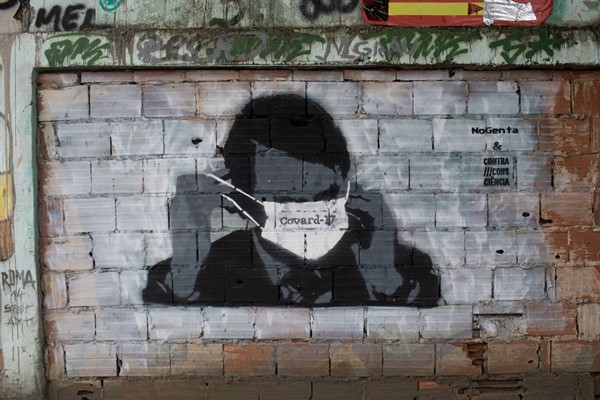Plenty of observers have rushed to predict that the COVID-19 pandemic will seriously harm the political fortunes of populists, or even make populism the outbreak’s first “ideological casualty.” Populists, they assert, vilify experts; now we are all learning that the price of not listening to experts may well be our own lives. Populists, it is also often said, are the great simplifiers; now we need experienced bureaucrats and leaders who can deal with a complex challenge.
Yet this valiant attempt to see a silver lining in this political moment is itself highly simplistic. Populism is not primarily characterized by hostility to scientists. Populists in power are likely to benefit from a “rally 'round the flag” effect, unless they appear as do-nothing retrogrades like Brazil’s Jair Bolsonaro or Mexico’s Andres Manuel Lopez Obrador. More importantly, populists can still deploy their key strategy of dividing citizens against each other and blaming minorities for all sorts of problems. It is too early to tell whether that strategy will work—much will depend on the length of the various lockdowns to contain the pandemic and the frustrations as well as economic dislocations generated by them. But it is certainly not too early to say that the Panglossian liberal gloating about an end of populism is premature.
Conventional wisdom has it that populism is about opposition to elites. But that understanding is superficial. After all, keeping a close eye on the powerful can just as well be a sign of good, vigilant citizenship. It is true that populist politicians, when in opposition, criticize governments, and other political parties. But they also do something else: They claim that they, and only they, represent what populists frequently call “the real people” or also “the silent majority.” This might not sound so bad; it is not immediately the same as, for instance, racism or a hatred of global governance. And yet such a claim to a monopoly of properly representing the people has two detrimental consequences for democracy.

